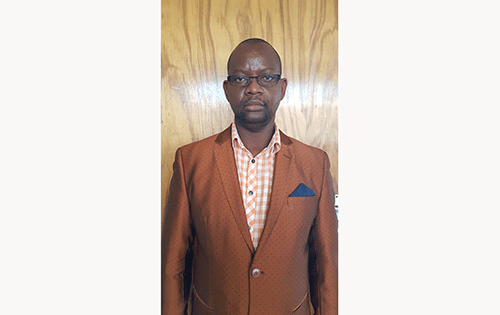Ruben Kapimbu
I’m Vita.
Nana lurches on patterned crutches and huffs heavily. Then, she glances at the rock-strewn Waterberg. Afterwards, she stands in front of the blue table-like mountain edge.
“That’s where I used to chase after tiny nub-tail monkeys,” she says, squeezing her tightened chest. “The barefaced humanlike creatures suckled milk from the backwards-arched horned goats.”
“Sometimes, we tapped four-cornered stainless drums with purplish rocks,” she adds, tittering. “The humming pounds chased away the red-butt monkeys.”
Then, she remembers the yellow dust shaped by the countless spiky-horned cows which belong to her uncle, Kangombe.
We meander a yard before granny stoops at the spot where the freshwater once stood. Nigh on the state-of-the-art swimming pool.
“Look at those sun-bleached trees,” she says, pinching my arm. “That’s where I frolicked with buttery milk in hollow canisters.”
“Or put up stick castles,” she says, tears spilling from her eyebrows.
Then, her knees crack while she bundles twigs and sows them in front of her.
“This’s where we squashed the brownish seeds out of the garden-fresh calabashes,” she says, clicking her lips after she bespeaks of the hard-shelled utensils.
“We wrestled fully grown calabashes from the red-tailed monkeys.” “Then, we dropped pinkie pebbles inside the calabash.”
“We poured out the seeds, and scraped the light calabash,” she explains. “These calabashes sprouted everywhere.” “Henceforth the name Otjozondjupa,” she says, spitting out yellowish mucus.
“Later, we smeared the white-flowered gourd with some red-orangey powder,” she recites. “Now and then, my nephew, Kambazembi would gift any passer-by a dark-brown cow and a suckling calf for keepsake.”
Soon we wrap up the soul-searching excursion around the highland before nana steers me to a table of rocks. Then, she pecks rubbles of the fenced thorn-bush kraal.
Thereafter, we saunter towards the reddish hill. Finally, nana blows some dry cowpats and whiffs the powdery dung.
“We had countless cows,” she says, hauntingly. Then she scoops debris from circled huts and shapes stick houses facing the orange-yellow sunset glowing over the swimming pool.
We arrive at the water trickling down the cliff, and granny wipes off the flooding tears around her hollowed cheeks.
Soon, we strain our swollen ankles and hike up the mountain. Suddenly, my heart thuds in the chest, when I spotted nana chitchatting with pink-faced sightseers in tongue-tied German.
* This is historical fiction



